Grieving is hard work. It’s exhausting. We need all the help we can get.
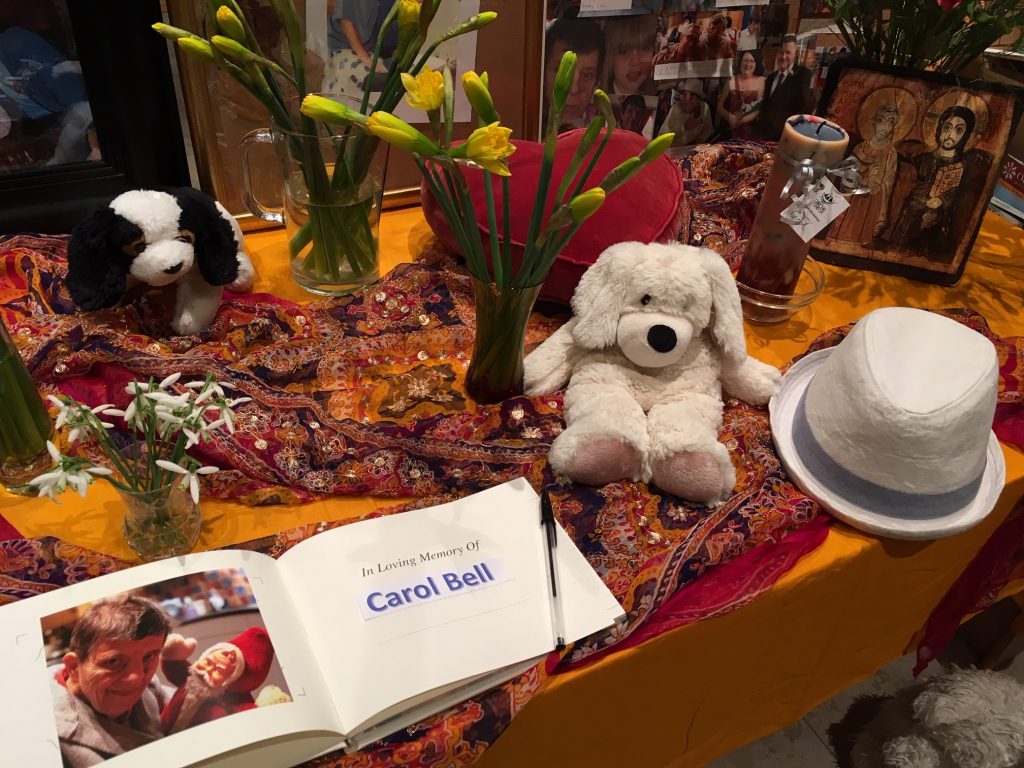
One of the things I’ve always found really helpful is the tradition in our L’Arche community to hold a wake the night before the funeral. It’s often held at the dead person’s home, but in Carol’s case we expected (and got) too large a crowd, so we had the wake in her local church where she was also very much at home. Some people had crossed seas or even oceans to be there.
It’s an opportunity to get together, to think about Carol, to share stories. It’s another opportunity to say goodbye, because her body was there in a small adjacent room, in open coffin, for anyone who wanted to see her one last time.
I went early so I could do just that. I found one of Carol’s dearest friends sitting by the coffin, heartbroken.
“Oh Irene,” she sobbed, and sobbed some more, “I feel such a big part of me has gone.”
I am taken aback by the number of people who feel that a part of them has gone. I was taken aback by my own fresh bout of sobbing, because even though I knew that Carol was dead, seeing her in her coffin brings it home again, just how dead she is.
I spent a long time in that little room. People came and went, all with their own memories, their own way of grieving. Carol’s friends with disabilities were also invited. Some came, some hesitated, some didn’t want to.
Manuela and Serena, Carol’s two housemates who have profound learning disabilities, were among those who came. They needed help to enter, but once in the room they each went uncharacteristically quiet – and then, after what seemed like several minutes of contemplation, each in their own way indicated that it was enough. Manuela wheeled herself out. Serena lost interest in the dead friend and started banging the coffin with great excitement, because that made an lovely noise, so after doing that for a little while, we thought it was time for her to re-join the crowd next door.
I was most deeply touched by Carol’s friend and housemate Peter, who told us last week that he was “hurting in his thoughts”. He came in, clutching his newspaper, and saw Carol in her coffin
“Oh sugar,” he said, once again nailing our feelings exactly.
He stood, and when we suggested he could sit down on one of the few chairs, he sat. What impressed me so much was that this man, who took years (decades, even) to mourn the loss of his mother and could, at first, only express his grief through angry outbursts – could not talk about it for years – was now so at home with his grief for Carol. We were there, but he didn’t really need us, except to give him permission to sit down, to touch the coffin (held held on to it for a very long time), to sit some more.
The one person he did need, and even managed to ask for in this own way, was the priest. “I think Cathy is still around here somewhere,” he kept saying. “I think she’s here.” She was, and she came and sat next to him.
“Carol in my thoughts and up to Jesus Christ,” he said again and again.
Peter is a man of routines. Sitting in a small and quite crowded room, with your dead friend in a coffin, is not part of any routine. But he declined any suggestions that he could leave that little room.
“I think I’ll stay for the second part,” he said, using the language familiar from TV and football.
“Do you mean the second part here in the room with Carol?” one of us asked. Yes, that’s what he meant.
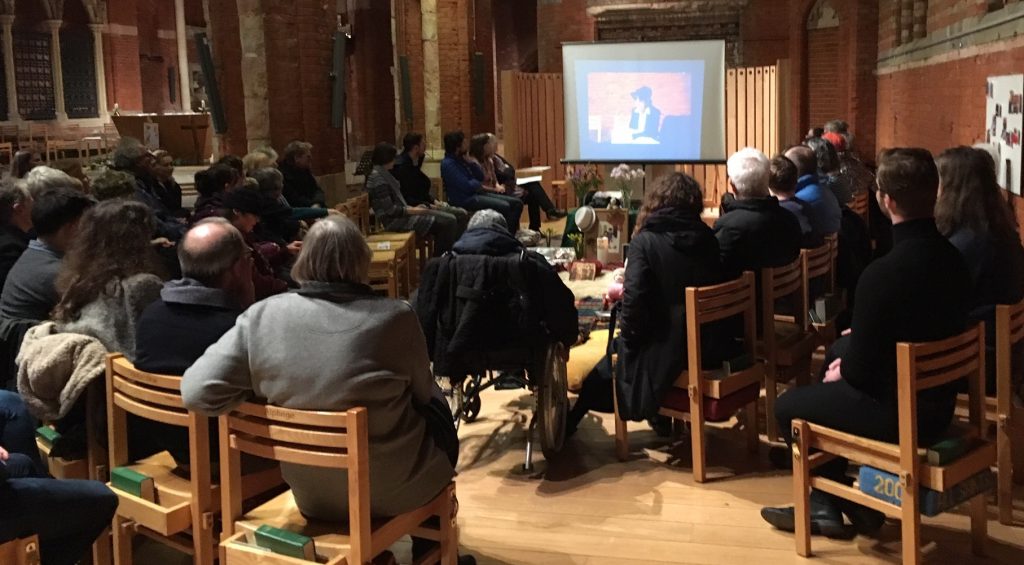
In the church space next door, the slide show had started. Photo after glorious photo, with people chipping in their stories. Ah yes, that was when…. And I remember….
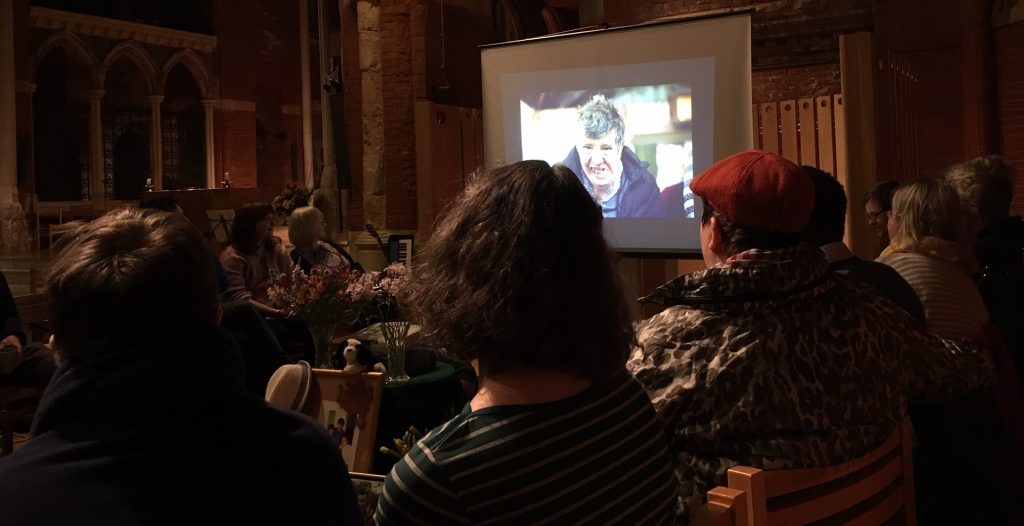
Memories of friendship. Such friendship. But also the memories of how tough things could be, how frustrating and annoying she could be. And the stories that made us laugh.
That time when she had to go into hospital for surgery, and refused the mask for the anaesthetic. Her support assistant started singing “Kung Fu Fighting”, Carol’s favourite song. In the end, the entire crew of theatre staff were belting it out, all in their scrubs. And so, in the end, was Carol, taking a deep in-breath to pitch the killer note – and taking on the mask at the same time.
That time of her very first flight, visiting a friend in Hungary who was getting married. How she stood at the back of the stationary plane, with everyone quietly waiting on the tarmac, shouting at the invisible pilot: “Man! Move!” And the nod of quiet satisfaction when, at last, he did.
“She was bossy!” a young man with Down Syndrome chipped in. “She always bossed Justin around!”
Which prompted David, an longstanding friend of the community, to add: “I often thought Carol had something of the Chicago Underworld about her. That toughness, but with such softness underneath.” We laughed in recognition at this startling new image.
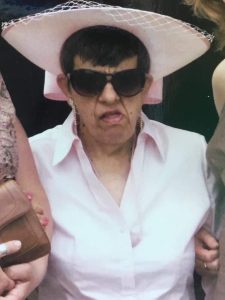
We passed around Carol’s favourite sweets. We sang her favourite songs. We were comforted.
Because we all felt the huge gap Carol leaves behind. Perhaps it is only when someone dies that you really understand their place in the world, and in your life. Indeed, a part of us has gone. As one of Carol’s friends (an assistant who lived with her for several years) said:
So much.
So many memories.
Oh, how much I loved her.
Now, I’m donning my hat, and I’m off to Carol’s funeral. See some of you there.
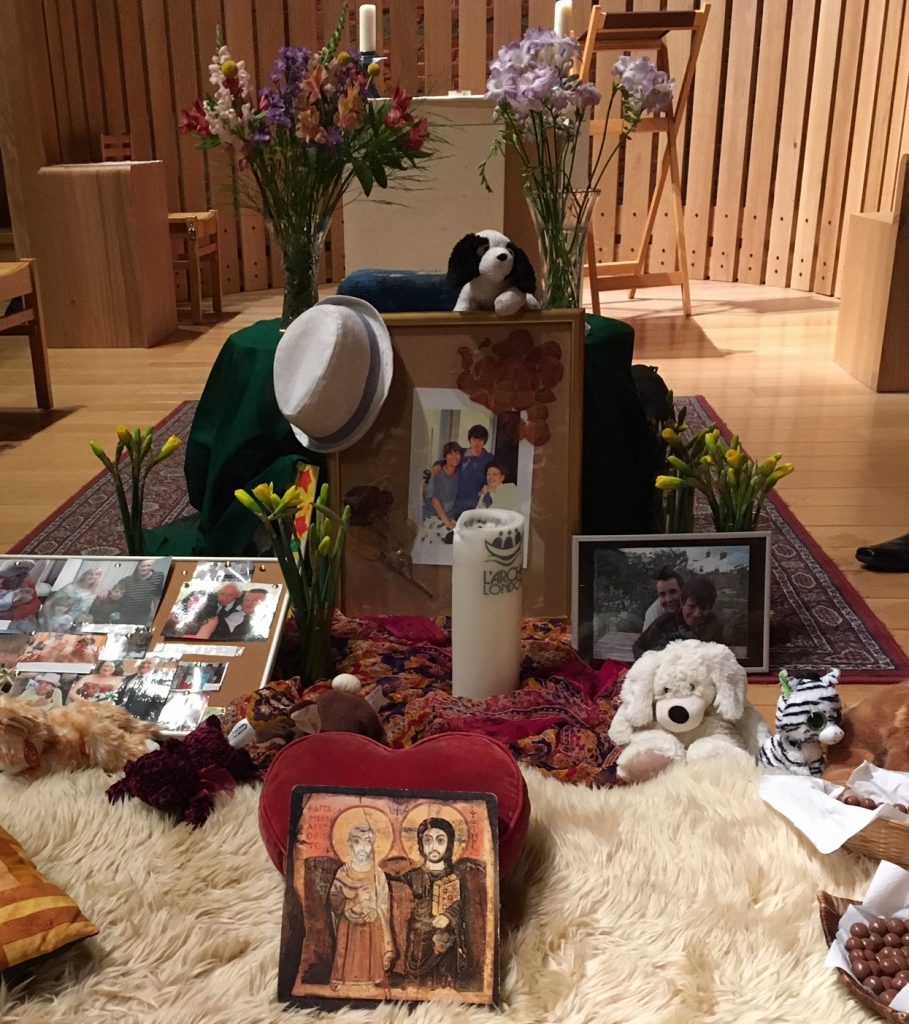

Your eulogy was beautiful Irene. I’m from the Kent Community and didn’t know Carol. But I know L’Arche – and your words gave language to grief we’ve experienced too in the death of those who taught us a great deal. Thank you.